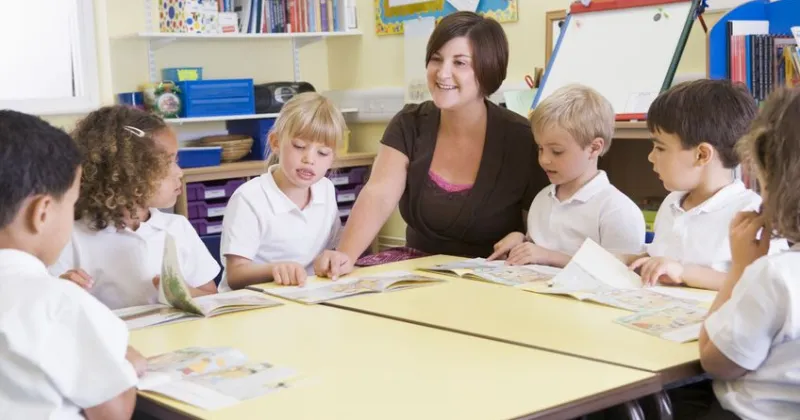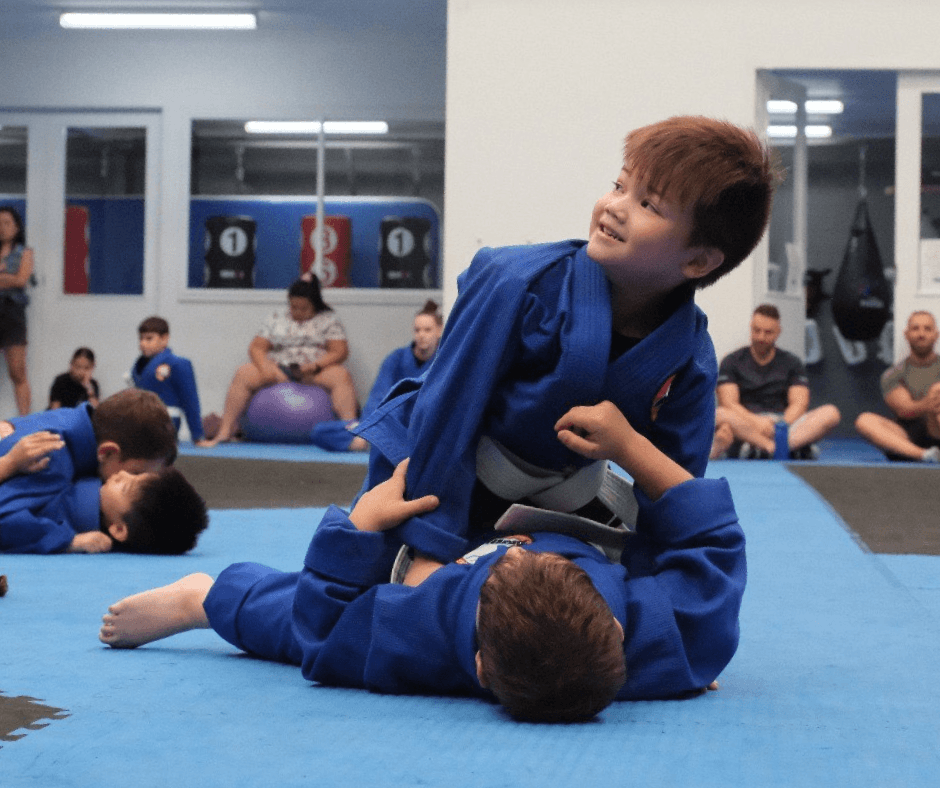What is a Working with Children Check, and who needs it?
Last updated on Wednesday, April 29, 2020 | By Craig Gibson

Need to know what a Working With Children Check (WWCC) is and who needs it?
This could apply if you are a:
[ml]
Let’s start by understanding what the Working With Children Check is.

Anyone who works face-to-face with children needs a Working With Children Check clearance. Image:CC
The Working With Children Check is there to keep children safe, including from emotional, physical and sexual abuse.
It is a way of screening people who work with children to determine their suitability for working with children - where a child is defined as a person under 18 years of age.
When a person applies for a Working With Children Check (WWCC) two things happen:
[ml][ol][li indent=0 align=left]A National Police Check, or criminal history record check, is conducted.[/li][li indent=0 align=left]Their employment record is reviewed to see if there is any ‘reportable workplace misconduct’.[/li][/ol][/ml]
It is important to distinguish between the Working With Children Check and a Police Check - as they are different. A Police Check on its own is not a substitute for a WWCC.
If you do any face-to-face work with children, including voluntary work, you need a Working With Children Check. This includes anyone:
[ml]
The law in some states - like NSW - has also been enhanced to include anyone interacting with children using remote forms of communication, for example video conferencing, to hold a WWCC. So if you are providing kids activities or lessons via video conference then you need the WWC clearance in NSW. Contact your local authority if you are unsure what applies in your state.

If you are providing kids activities or lessons remotely via video then you need WWC clearance in NSW. Image:CC
The best way to check is to ask an activity provider if they or their staff have the Working With Children Check clearance. They or their employer should be able to provide you with a number. It’s as easy as verifying their status online with the authority in your state, using their details and the number to ensure that the clearance is current. Clearance is typically valid for a number of years, and needs to be renewed periodically.
Each state has its own legislation and government department responsible for Working with Children Checks. Here is a summary of who administers this where you live.
[ml]
[ml]
[ml]
[ml]
[ml]
[ml]
[ml]
There is typically a fee to be paid for a check, though volunteers are often free.
If your organisation has staff - paid or volunteer - who provide activities or services to children under the age of 18 then you are considered an 'employer'. In terms of your child safety obligations, it is against the law to engage anyone without a Working With Children Check. You are responsible for your worker/s or volunteer/s getting clearance. Current employees or volunteers who become barred must also be removed immediately from all child-related work.
States like NSW also have stringent requirements, including that:
[ml]
*This article does not constitute legal advice and Kidsbook recommends you seek professional advice in this regard.
This could apply if you are a:
[ml]
- [li indent=0 align=left]Parent who has kids attending activities or after school classes with a provider.[/li][li indent=0 align=left]An activity provider who works with children .[/li][li indent=0 align=left]An employer who has staff members who interact with children.[/li]
Let’s start by understanding what the Working With Children Check is.

Anyone who works face-to-face with children needs a Working With Children Check clearance. Image:CC
What is the Working With Children Check?
The Working With Children Check is there to keep children safe, including from emotional, physical and sexual abuse.
It is a way of screening people who work with children to determine their suitability for working with children - where a child is defined as a person under 18 years of age.
When a person applies for a Working With Children Check (WWCC) two things happen:
[ml][ol][li indent=0 align=left]A National Police Check, or criminal history record check, is conducted.[/li][li indent=0 align=left]Their employment record is reviewed to see if there is any ‘reportable workplace misconduct’.[/li][/ol][/ml]
It is important to distinguish between the Working With Children Check and a Police Check - as they are different. A Police Check on its own is not a substitute for a WWCC.
Who needs a Working With Children Check?
If you do any face-to-face work with children, including voluntary work, you need a Working With Children Check. This includes anyone:
[ml]
- [li indent=0 align=left]Providing services or activities for under 18s.[/li][li indent=0 align=left]Involved in face-to-face activities with children.[/li][li indent=0 align=left]Who works with children, such as music teachers, extracurricular/sports coaches, instructors, dance teachers, tutors, au pairs and nannies.[/li][li indent=0 align=left]Who works in an organisation that delivers services to children and handles confidential data.[/li]
The law in some states - like NSW - has also been enhanced to include anyone interacting with children using remote forms of communication, for example video conferencing, to hold a WWCC. So if you are providing kids activities or lessons via video conference then you need the WWC clearance in NSW. Contact your local authority if you are unsure what applies in your state.

If you are providing kids activities or lessons remotely via video then you need WWC clearance in NSW. Image:CC
How can I check if an activity provider has Working With Children Check clearance?
The best way to check is to ask an activity provider if they or their staff have the Working With Children Check clearance. They or their employer should be able to provide you with a number. It’s as easy as verifying their status online with the authority in your state, using their details and the number to ensure that the clearance is current. Clearance is typically valid for a number of years, and needs to be renewed periodically.
How do you get a Working With Children Check?
Each state has its own legislation and government department responsible for Working with Children Checks. Here is a summary of who administers this where you live.
[ml]
- [li indent=0 align=left]In NSW Working With Children Check applications are processed by the Office of the Children's Guardian.[/li]
[ml]
- [li indent=0 align=left]In Victoria the Department of Justice and Community Safety administers the Working with Children Check.[/li]
[ml]
- [li indent=0 align=left]In Queensland Blue Card Services administers the blue card system, their Working with Children Check.[/li]
[ml]
- [li indent=0 align=left]In South Australia the Department of Human Services Screening Unit conducts Working with Children Checks.[/li]
[ml]
- [li indent=0 align=left]In Tasmania the Department of Consumer, Building and Occupational Services administers registrations to work with vulnerable people.[/li]
[ml]
- [li indent=0 align=left]In WA the Department of Communities processes the Working with Children Check (WWC Check) in that state.[/li]
[ml]
- [li indent=0 align=left]In the Northern Territory SAFE NT administers working with children clearance, also called an Ochre Card.[/li]
There is typically a fee to be paid for a check, though volunteers are often free.
What is the obligation of employers?
If your organisation has staff - paid or volunteer - who provide activities or services to children under the age of 18 then you are considered an 'employer'. In terms of your child safety obligations, it is against the law to engage anyone without a Working With Children Check. You are responsible for your worker/s or volunteer/s getting clearance. Current employees or volunteers who become barred must also be removed immediately from all child-related work.
States like NSW also have stringent requirements, including that:
[ml]
- [li indent=0 align=left]Employers cannot self-verify.[/li][li indent=0 align=left]Records of employees who require a Check must be kept, including when they were verified.[/li][li indent=0 align=left]Two people from the organisation must be nominated to receive confidential information.[/li]
*This article does not constitute legal advice and Kidsbook recommends you seek professional advice in this regard.


